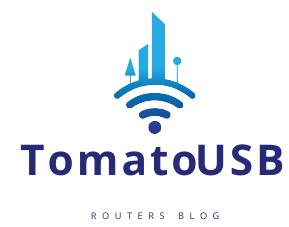Smart homes have become increasingly popular in recent years due to their convenience and efficiency. With automated lighting, temperature control, security systems, and voice-activated personal assistants, it’s no surprise people are upgrading their homes to become smart homes. But is it worth it? In this article, we’ll discuss the pros and cons of upgrading to a smart home to help you decide if it’s the right choice for you. Keep reading;
Overview
Smart homes are becoming increasingly popular and boast many benefits, but with every new technology, there are also some drawbacks. Here are some of the pros and cons of upgrading your home to a smart home:
Pros
Here are the advantages of upgrading your home to a smart home;
- Convenience
One of the most significant advantages of upgrading your home to a smart home is the convenience it offers. With smart homes, you can automate many tasks that can make your life easier. For instance, with smart lighting, you can control the lights in your home with your voice, smartphone, or tablet.
Further, smart thermostats can help you regulate the temperature in your home by learning your daily routine, adjusting to your preferred settings, and even sensing when you are away from home.
- Energy Efficiency
Another benefit of upgrading your home to a smart home is increased energy efficiency. Smart homes can help you save energy and reduce your environmental impact in various ways. Here are some examples:
Smart thermostats can help regulate the temperature in your home more efficiently by learning your daily routine and adjusting to your preferred settings. In addition, they can help reduce energy consumption by allowing you to control the lighting in your home more efficiently.
- Energy Monitoring
Smart home systems come packed with a plethora of features, and energy monitoring is one of them. Energy monitoring tools help you track your energy consumption and identify ways to reduce your energy usage further.
Notably, energy monitoring tools help you identify the appliances that consume the most energy in your home. Additionally, energy monitoring tools allow you to track your energy usage in real-time and can alert you when you are nearing your set limit.
- Increased Home Security and Improved Accessibility
Smart homes are equipped with various security features, such as smart locks and video doorbells, which can help enhance your home security and provide peace of mind.
In addition, smart homes can make tasks easier for those with disabilities or mobility issues. For instance, a friend was looking for Automated lights and voice-activated assistants to enhance his home security. We got a recommendation that Zigbee links your smart devices to overall home security installation which enables constant monitoring and management.
Cons
Despite the advantages, there are some disadvantages to upgrading your home to a smart home;
- Cost
While upgrading to a smart home can offer many benefits, it can also come with a significant price tag. The cost of smart home devices can vary, and purchasing high-end products and features can be expensive. Additional costs include professional installation and subscription fees for smart home services.
- Technical Issues
Smart home devices rely on stable internet connectivity, and technical issues can arise, leading to inconveniences or the need for professional assistance. For instance, if there is a disruption in your internet connection, your devices may become unusable, and you’ll need to call for support.
- Security Risks
One of the significant concerns with smart homes is the potential for security breaches. Smart homes rely on internet connectivity, making them vulnerable to hacking and data breaches, which can compromise your privacy and security. It’s essential to take steps such as using a strong router password, setting up two-factor authentication, and keeping your software up-to-date to minimize security risks.
- Compatibility Issues
With the vast number of smart home devices available, compatibility issues may arise when trying to integrate different devices from different manufacturers. To avoid compatibility issues, it’s important to research and buy products that work together from the same manufacturer or invest in a smart home hub that can control multiple devices from different brands.
While there are some drawbacks to upgrading to a smart home, many of these issues can be mitigated with the appropriate precautions and planning. Ultimately, weighing the costs and benefits is important to determine if upgrading to a smart home is the right choice for you and your household.
Conclusion
Upgrading your home to a smart home can offer many benefits, such as convenience, increased energy efficiency, improved accessibility, and enhanced home security. However, there are also some drawbacks to consider, such as the potential for security breaches, technical issues, compatibility issues, and the cost of high-end products and features.
Before deciding to upgrade to a smart home, it’s essential to weigh the pros and cons carefully and determine which features are necessary and which are not. It’s also important to take precautions to protect your privacy and security, such as using a strong router password and setting up two-factor authentication.



